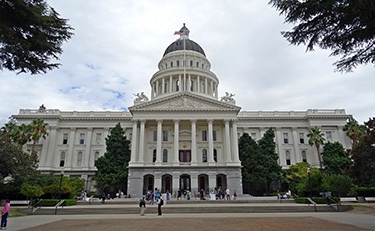Employment-Related Bills Currently Being Considered By Governor Newsom

Given the pandemic, the California State Legislature has had a difficult and, by some accounts, less productive year. Nevertheless, there are numerous laws that have been presented to Governor Gavin Newsom that will have a significant impact on business if they are signed. To begin with, on August 31, 2020, Governor Newsom signed AB 3088, known as the Tenant, Homeowner and Small Landlord Relief and Stabilization Act, which halts evictions of renters impacted by COVID-19 until February 2021, and helps homeowners avoid foreclosure. Many more COVID-19 and/or employment law related bills have been passed by the California legislature and await his signature. On the employment law side, these include:
- SB 1383 would amend the California Family Rights Act and the New Parent Leave Act to apply to employers with 5+ employees.
- SB 973 would require employers with 100+ employees to report pay data by race/ethnicity/sex.
- AB 2992 would provide job-protected time off for certain crime victims and their immediate families.
- AB 3075 would require new corporations to attest to owner, director, or officer judgments for wage/hour violations. It would also permit local jurisdictions to enforce state wage standards and impose successor employer liability for wage/hour violations.
- AB 979 would require public companies with executive offices in California to appoint members to their boards of directors from underrepresented communities.
- AB 2257 would create a number of new exemptions from the strict “ABC” test imposed by last year’s AB 5 to determine if a worker is an employee or an independent contractor, including certain music industry workers, freelance writers, insurance inspectors, licensed landscape architects, real estate appraisers, home inspectors, and translators. This bill would also change the existing professional services exemptions for certain photographers and photojournalists and revise the conditions under which business service providers providing services pursuant to a contract to another business would be exempt.
Further, a number of COVID-19-related bills are before the Governor for signature:
- AB 685 would permit Cal-OSHA to close a business believed to pose a risk of imminent harm to its workers from COVID-19, and require the employer to notify workers who may have been exposed.
- SB 1159 was passed as an urgency statute to take effect immediately. This bill would create a rebuttable presumption until 2023 that essential workers who contract COVID-19 were infected while on the job and would qualify for Workers Compensation under certain conditions.
- AB 3216 would require employers to offer laid-off employees information about job positions that become available for which the laid-off employees are qualified, and to offer positions to those former employees based on a specified preference system.
- SB 729 would eliminate meal and rest break penalties for employees working from their home due to COVID-19.
- SB 1447 would extend tax credits up to $100,000 for small businesses who hire new workers.
- SB 822/AB 1867 would require employers with 500 or more employees in the food, healthcare, and emergency responder sectors to provide supplemental paid sick leave to their workers.
- AB 2043, passed as an urgency statute, would require Cal-OSHA to compile and report investigations of agricultural workplaces for COVID-19-related conditions and illness outbreaks.
- AB 276 would take effect immediately as a tax levy, and raise the amount employees can borrow from their employer-sponsored retirement accounts from $50,000 to $100,00 if impacted financially by COVID-19.
Governor Newsom has until September 30, 2020 to consider and sign or veto these laws. We will be sure to keep you informed as to what becomes law and what does not, and we will be providing training on the new laws in the months ahead. Stay tuned!
The author would like to gratefully acknowledge the assistance of Joanne Warriner.
This publication is published by the law firm of Ervin Cohen & Jessup LLP. The publication is intended to present an overview of current legal trends; no article should be construed as representing advice on specific, individual legal matters, but rather as general commentary on the subject discussed. Your questions and comments are always welcome. Articles may be reprinted with permission. Copyright 2020. All rights reserved. ECJ is a registered service mark of Ervin Cohen & Jessup LLP. For information concerning this or other publications of the firm, or to advise us of an address change, please send your request to info@ecjlaw.com.
